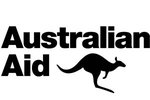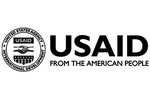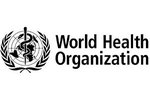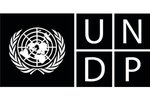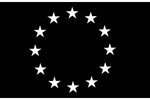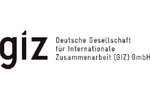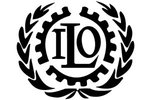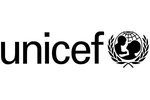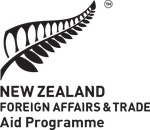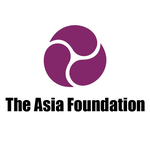We See You, We Hear You, We Support You: Our message to mums
Let’s support breastfeeding but understand that it’s not easy for everyone.
This article was written by Gabriela Leite-Soares, our Head of Health, who we are thrilled to have back at work after she recently returned from parental leave.
“For those of you who plan to breastfeed, how long do you think you’ll breastfeed your babies?” My doula posed this question during a childbirthing class that I attended just a few weeks before my due date. “Six months,” I said. I intended to exclusively breastfeed my baby for six months. Little did I know that will alone is not enough to drive my milk flow.
The World Health Organization (WHO) recommends exclusive breastfeeding for the first six months of a child’s life. According to WHO, “breastfeeding is one of the most effective ways to ensure child health and survival.” Breast milk contains antibodies that reduce the likelihood of babies getting sick and help babies to recover much faster too.
There are many important benefits to breastfeeding for the health of both babies and mothers. Breastfeeding also provides a once-in-a-lifetime bonding opportunity for mother and child. It can also save new parents money they would have otherwise spent on baby formula.
There is no doubt about the benefits of breastfeeding. However, WHO, joined by 136 of its Member States who signed the International Code of Marketing of Breast-milk Substitutes, recognizes that the socioeconomic status, health and nutrition of women contribute to the success of the implementation of breastfeeding. Member States are recommended to establish enabling environments that can help mothers to breastfeed their babies.
So, what do these enabling environments look like? First, policies must grant new parents - both mums and dads - generous paid parental leave so that they can recover and bond with their newborns. (Sadly I believe a month of leave for fathers, which is often considered to be on the generous end, is not nearly enough.)
Second, policies must also support new mothers returning to work by allowing them to take adequate breaks for breastfeeding and by requiring workplaces to provide lactation rooms, on-site, for them to do so. I would even go further to recommend that these breaks are offered to the partners as well if breastfeeding is done at home.
Even in the case of dual-income heterosexual couples who share housework equally before having children, women tend to take on a greater portion of household duties once a child is born. Author Eve Rodsky discusses in her book Fair Play how in the case of the US, for example, the total workload for men increases by about 40 minutes a day after a child is born, while women pick up over two hours of additional work per day.
So, when companies offer partners adequate breaks, it allows mums to focus on nursing their babies instead of having to worry about cleaning the pumping parts or even changing the diaper soon after nursing their babies. Some of my girlfriends have told me that they spend their lunch breaks feeding their children and can only eat their lunch on their desks afterwards (and on some days they skipped lunch altogether!)
Third, there must be ample trained health professionals who provide affordable lactation support to new mums with empathetic, respectful and non-judgemental care.
Finally, there must be cultural shifts that normalize partners supporting new mums physically and emotionally by taking care of household chores, changing babies’ diapers, reading to their babies and actively participating in child-rearing.
Societies should embody the mindset that it takes a village to raise a child, and so it is essential that families and friends regularly check-in on new mums to make sure they feel visible and supported (but avoid offering unsolicited advice).
Long before I embarked on the journey of motherhood, I was always a proponent of women having access to vast amounts of information that provide us with the autonomy to make our own choices.
Such choices include whether we want to breastfeed our babies - or not. I am a firm believer that unless you are a paediatrician, the choice women make regarding how they nurse their babies is none of your business. A mother’s choice should be respected and supported with a non-judgmental response.
When my baby’s pediatrician advised that we start supplementing with formula to help with my baby’s weight, I was furious. At his recommendation. At him. And deep down at my own body for its inability to produce more milk.
I have read and followed every piece of advice I received from a lactation consultant. This advice included drinking lots and lots of water, making skin-to-skin contact with my baby, making sure my baby latched on my breast correctly, and power pumping (often at 4:00 a.m.). I also followed the principle of supply and demand for breastmilk, and hence made sure that my milk was emptied every two-to-four hours.
I read that it is important to relax when pumping as it may help with the milk “let down”, but I couldn't help but be stressed wondering whether my baby was getting enough milk. I religiously consumed oats, lactation cookies, and all the foods you can name that allegedly help increase milk supply. Hence the frustration and anger.
I cried silently when nursing my baby while my partner was busy researching Motilium, a medication prescribed by the pediatrician to help with my milk flow. I kissed my baby’s forehead, apologizing profusely for my failure to provide what their body needed. I felt guilty toward my baby. I felt defeated by my own failure.
But why did I have to feel defeated? Just because someone breastfeeds their baby does not mean that they are a “better” mother. “I am a good mother to my children.” I whispered this to myself before consenting to purchase the baby formula.
Public discussion around baby formula has led many women to feel judged by society as being bad mothers because they are not breastfeeding their babies. When suggestions for a complete ban on the sale of baby formula are seen in the media, citing risks for babies, it casts distrust over mothers who formula feed.
The narrative is incomplete and often leaves out that many of the supposed harms of formula only exist when it is prepared incorrectly. Incorrect preparation can occur when people have no access to clean water, use the wrong ratio of water to formula, or do not use proper sterilization methods.
I consider myself to be quite privileged for having been able to take three months of paid parental leave. I have also been working from home since the beginning of the pandemic last year. This allows me to nurse my baby on my lap while juggling between back-to-back meetings and deadlines.
I have an incredibly supportive, respectful, and loving partner. I also have access to a professional lactation consultant as well as a hospital-grade breast pump. Moreover, I have peer-support from other breastfeeding mothers. I also loved every moment of the four months of exclusive breastfeeding that I was able to share with my baby.
I often think of many women around the world who work in the informal sector and do not have the luxury of paid-parental leave and those women looking after multiple children and working in the field or in lojas (supermarkets in Timor-Leste). Many have no option but to leave their job. I think of women who are in abusive and even ordinary relationships who do not get the support they need from their partner for postpartum recovery and to breastfeed.
Catalpa is committed to fostering a safe and family-friendly work environment for our staff. We believe one of the best ways to achieve this is by having policies that show our staff that they matter - that they are valued, appreciated, and supported by the organization.
One of the most important policies we have been working on recently is our policy on supporting breastfeeding in the workplace. We know that breastfeeding is a shared responsibility.
Staff at Catalpa are allowed to take unlimited breaks to breastfeed infants. They are encouraged to block out times in their calendar for feeding sessions as a way of ensuring that others will be more thoughtful when assigning meetings or tasks to colleagues during their breastfeeding sessions.
However, we know that a baby does not schedule its appetite to line up with what is in a Google calendar, so there is no expectation that staff will only feed during these times. We promote flexible working arrangements for our staff.
We hope that by establishing this policy at Catalpa, we can send a clear and firm message to our staff who have recently returned from parental leave and wish to continue breastfeeding their babies: We see you, we hear you, we support you.
Gabriela (Gabi) Leite-Soares is our Head of Health who leads our health strategy and the programs that are part of it. Before us, she worked for organizations like the World Bank Group, the Economist Intelligence Unit, and UNICEF. She founded TEDxDili and TEDxDiliWomen. She likes to discover books that talk about consent for children. In everything she does, she focuses on gender equality and social inclusion. To learn more about Gabi, read our International Women’s Day blog post on how Gabi champions for gender equality in her life and work, and check her out on LinkedIn.
To learn more about Catalpa, head on over to our website or follow us on Facebook, LinkedIn, and Twitter.
